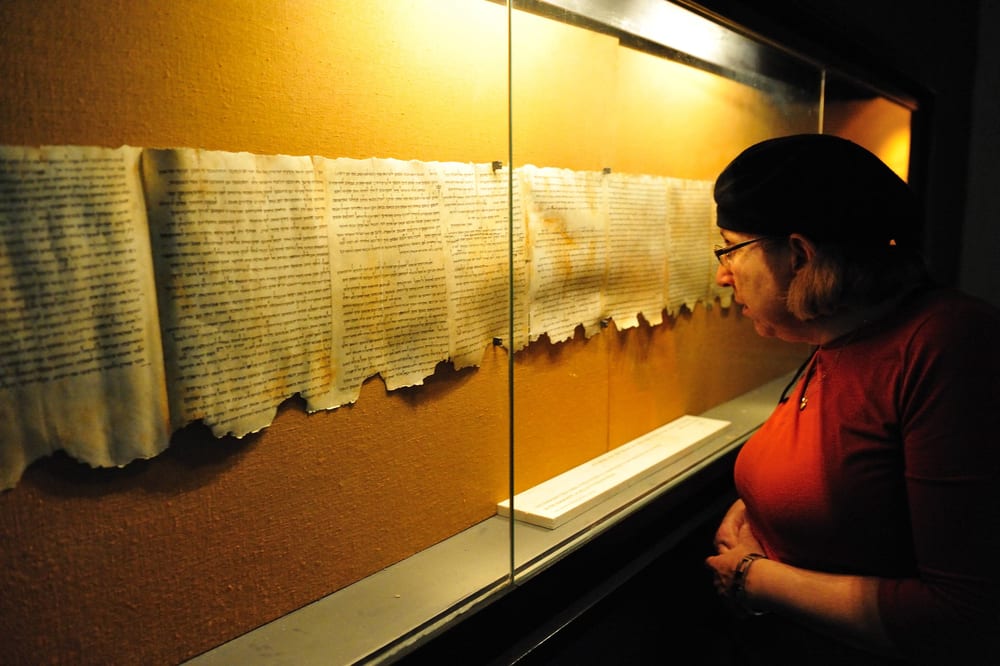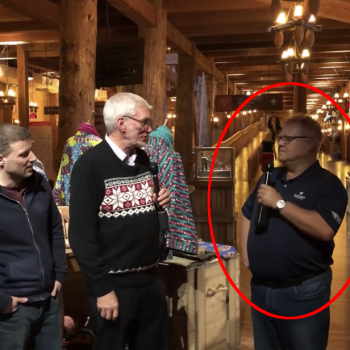Beginning in 1947, archaeologists found scrolls and fragments of parchment inside a cave near the Dead Sea. Written on those “Dead Sea Scrolls” were passages from the Hebrew Bible, far older than anything researchers had seen before. The discoveries gave them insight into how the Bible came to be written.
While the bulk of the scrolls are owned by the Israeli government, some of them have been bought, sold, and traded on the black market. The Museum of the Bible in Washington, D.C. — a $500 million museum owned by the same evangelical Christian family that runs Hobby Lobby — acquired 16 of the supposed fragments several years ago.
In 2018, it was revealed that five of those fragments were fake. They were forgeries. The Green family had been hoodwinked… or, at the very least, the people who sold them the goods were duped.

To their credit, they funded an independent investigation of all 16 fragments led by fraud expert Colette Loll. She insisted on a few wise conditions: Museum officials wouldn’t be allowed to offer any input, her report would be the final word on those artifacts, and the information would be made public either way so that the Museum couldn’t bury the truth.
That report is now public. The bottom line? All 16 fragments of the Dead Sea Scrolls appear to be forgeries.
National Geographic‘s Michael Greshko tells the full story:
In a report spanning more than 200 pages… Loll found that while the pieces are probably made of ancient leather, they were inked in modern times and modified to resemble real Dead Sea Scrolls. “These fragments were manipulated with the intent to deceive,” Loll says.
…
Despite being purchased at four different times from four different people, the report finds that all 16 of the Museum of the Bible’s Dead Sea Scroll fragments were forged the same way — which strongly suggests that the forged fragments share a common source. However, the identity of the forger or forgers remains unknown. It’s possible that the fragments’ sellers were themselves duped when they originally acquired the pieces from other dealers or collectors.
None of this disputes the stories in the Bible itself. That’s not what this is about. The revelations say more about how desperate the Green family was to acquire anything Bible-related, to the point that they’re making illegal or irresponsible decisions left and right, than it does about the veracity of the text. Even if the fragments were real, they would only confirm how long (and in what manner) these stories have been told, not that something supernatural was happening thousands of years ago.
But the headline isn’t doing the Museum of the Bible any favors: It always seems to be associated with criminal behaviors and lies. This new discovery will only make things worse.
(Image via Shutterstock. Thanks to Drew for the link)




It’s Moving Day for the Friendly ..."
It’s Moving Day for the Friendly ..."
It’s Moving Day for the Friendly ..."
It’s Moving Day for the Friendly ..."